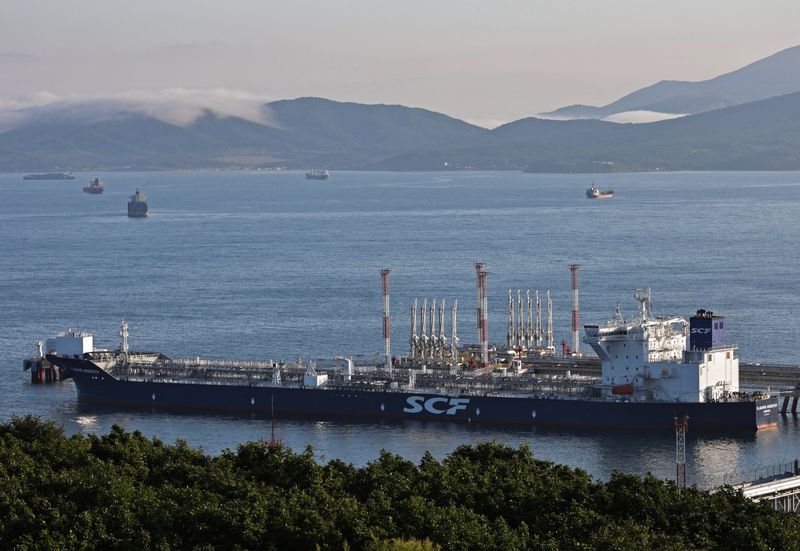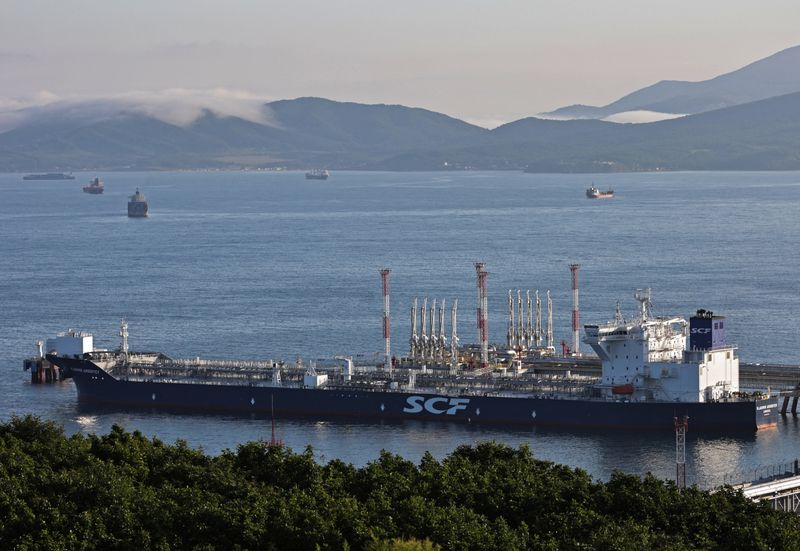
By Scott DiSavino
NEW YORK (Reuters) – Oil prices held near a 14-month low on Thursday as bearish worries about demand in the U.S. and China and a likely rise in supplies out of Libya offset a big, bullish withdrawal from U.S. inventories and a delay to output increases by OPEC+ producers.
Brent futures were down 18 cents, or 0.3%, to $72.52 a barrel by 1:39 p.m. EDT (1739 GMT), while U.S. West Texas Intermediate (WTI) crude fell 25 cents, or 0.4%, to $68.95.
That puts Brent on track for its lowest close since June 2023 and WTI on track for its lowest close since December 2023.
The U.S. Energy Information Administration said energy firms pulled 6.9 million barrels of crude out of storage during the week ended Aug. 30. [EIA/S] [API/S]
That was much bigger than the draw of 1 million barrels analysts forecast in a Reuters poll, but was in line with the draw of 7.4 million barrels reported by the American Petroleum Institute industry group on Wednesday.
Further support came from discussions between the Organization of the Petroleum Exporting Countries and allies led by Russia, known collectively as OPEC+, about delaying output increases due to start in October.
OPEC+ agreed to delay a planned oil output increase for October and November, and said it could further pause or reverse the hikes if needed.
Analysts at U.S. investment banking firm Jefferies said the OPEC+ decision has the effect of tightening fourth-quarter balances by about 100,000-200,000 barrels per day (bpd) and should be sufficient to prevent material builds even if demand from China does not improve.
In Libya, an OPEC member, some tankers were being allowed to load crude from storage even though output remained curtailed amid a political standoff over the central bank and oil revenue.
CONFLICTING DATA
The latest U.S. economic data offered some relief about the health of the economy to a market looking for clues about the path of the Federal Reserve interest rate cuts.
The Fed hiked rates aggressively in 2022 and 2023 to tame a surge in inflation, but is widely expected to reduce borrowing costs at its Sept. 17-18 policy meeting. Lower rates can boost economic growth and demand for oil.
U.S. services sector activity was steady in August, but employment gains slowed, remaining consistent with an easing labor market.
Meanwhile, U.S. private job growth hit a 3-1/2-year low in August and data for the prior month was revised lower, potentially hinting at a sharp labor market slowdown.
By contrast, the number of Americans filing new applications for jobless benefits declined last week as layoffs remained low.
“In our view, the ‘Beige Book’ suggests that the economy is already growing at a below-trend pace and that recession risks are rising,” analysts at UBS said in a note, referring to the release on Wednesday of a Fed report that acts as a temperature check on the health of the economy about every six weeks.

One factor that has weighed on oil prices in recent weeks has been low crack spreads, which limits how much money a refinery can make turning oil into gasoline and other products.
U.S. gasoline futures were on track for their lowest close since March 2021, cutting the 321-crack spread, which measures refining profit margins, to its lowest since February 2021.
This post is originally published on INVESTING.





